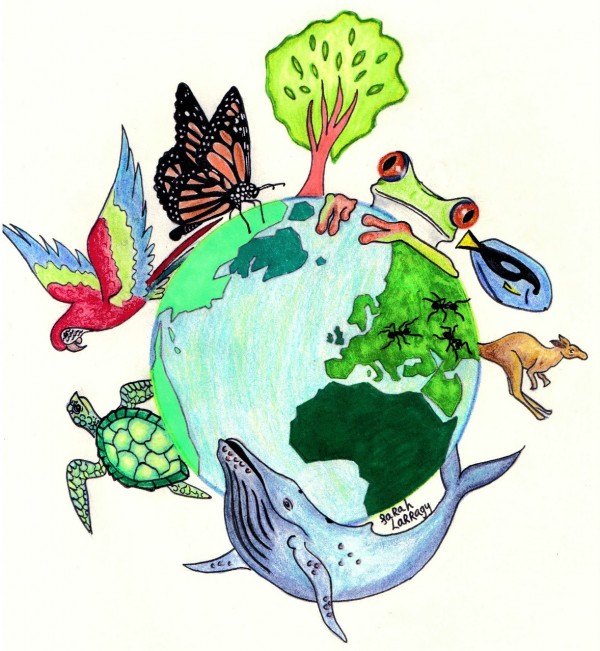For some time, I have worried that my climate activism pales in comparison to the mass climate atrocities that are committed by corporations, countries, and celebrities daily. It is hard to feel as though the small steps you take count for much, in a world where only the little guys are trying. And while I find climate inaction frustrating, in a way I can empathise with those who are apathetic given the current situation. It is hard to see how you are making a difference when it appears that the climate emergency is growing more helpless, and the real players are not doing anything to stop it. It is not all doom and gloom, though, and there are some real ways you can still feel like you’re taking a stand in the climate fight.
According to a 2017 report by the Climate Accountability Institute, 70% of the world’s greenhouse gas emissions can be traced back to just 100 companies. The real changes that will actually help us to avoid reaching a global temperature increase of 1.5 degrees Celsius, must be made through governmental intervention, not by cutting one minute out of your showers.
The recent controversy surrounding the usage of private jets by public figures and celebrities was nothing short of absurd. On July 12, Kylie Jenner took a 17-minute flight from Van Nuys, California to Camarillo, California. That is a 45-minute drive. This singular flight’s carbon emissions were equivalent to what the average person would produce in three months. To put this in perspective, public figures and corporations are taking these private jets daily.
It is easy to feel helpless as an average person trying to make eco-friendly decisions, like looking to buy a family car.
It is easy to feel helpless as an average person trying to make eco-friendly decisions, like looking to buy a family car. Sincerely thinking that we were doing the right thing by choosing an electric car, despite the drastic adjustment it would mean for my parents, we were disheartened to hear about the negative environmental impact even creating the battery for one of these cars can have. We have downsized from two cars to one, yet I still feel guilty about the fact we own one at all, especially with the rising competitive nature of activism.
We do have to live, and it is undeniable that some of the most sustainable lifestyles are also the costliest, which is not exactly student-friendly.
We do have to live, and it is undeniable that some of the most sustainable lifestyles are also the costliest, which is not exactly student-friendly. Take the cost difference between fast fashion, which is mass-produced and incredibly wasteful, and slow fashion, a movement to sell high-quality and timeless products that don’t need to be replaced as often. The average pair of jeans at Zara are between €10 and €30, at most. Patagonia or Stella McCartney? Into the hundreds. When you are struggling economically, it’s not that easy to be concerned about investment pieces. Sometimes, you just need clothes.
Honestly, I’m stressed. We’re in a now-or-never situation, and if we do not turn this around, we may have no other chance to change the tide. Areas of Earth could be inhabitable by 2050 due to weather disasters. Despite how frustrating it can be, however, do not let that stop you from making changes to help the planet, every tenth of a degree counts.
We do not hear about the progress made towards solving global warming often, but there is good news! France has considered banning private jets, and has taken steps to incentivise citizens to switch cars for e-bikes. Ants could eliminate the need for pesticides, which have a horrible effect on the environment. The Great Barrier Reef is even showing signs of recovery, and I remember all of this when there was a much bleaker outlook.
The fundamental things you still can participate in are small everyday changes, and more importantly, activism. Water conservation can be a quite easy change to work into your life, by taking shorter showers and turning off running water when not in use. Essentially, do not be blasé, and you can save a few pennies that way as well. Small lifestyle changes are definitely achievable. Travel by plane less often, make use of public transport when possible, and if you have to drive, carpool.
However, the most important thing you can do is work towards larger change in your community. Urge your city or town to create zero-emissions public transportation, and expand those routes to be available to those who need them. Call up the companies (the Big 100) that are causing this 70% of emissions, because we are the ones using their products. Boycott them, or make it known you want them to invest in wind and solar power if they wish to keep your business. It is called the power of the purse for a reason.
It is also about attitude. Apathy can be one of the most dangerous things, especially given the pressing nature of climate change. If, as a society, some of the most diligent give up on pursuing change, hope will be lost entirely. If we continue to push the mark, work within our means, and speak out against inaction, we will continue to see positive change.






